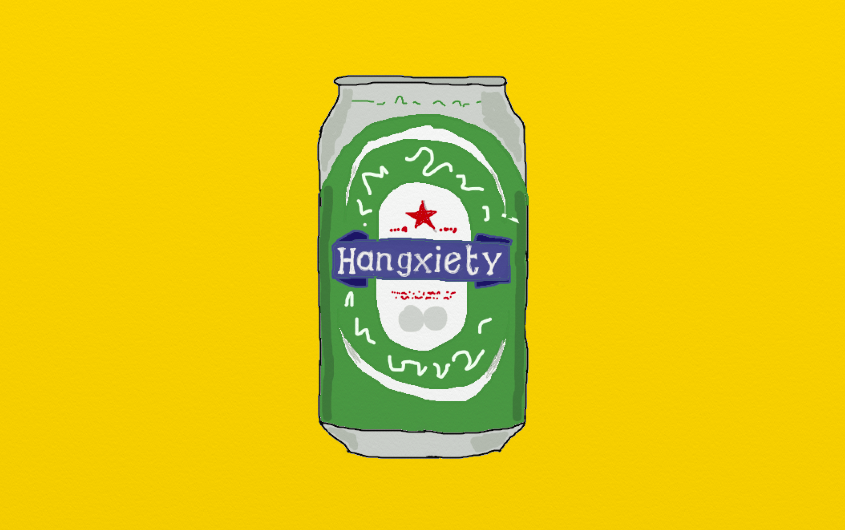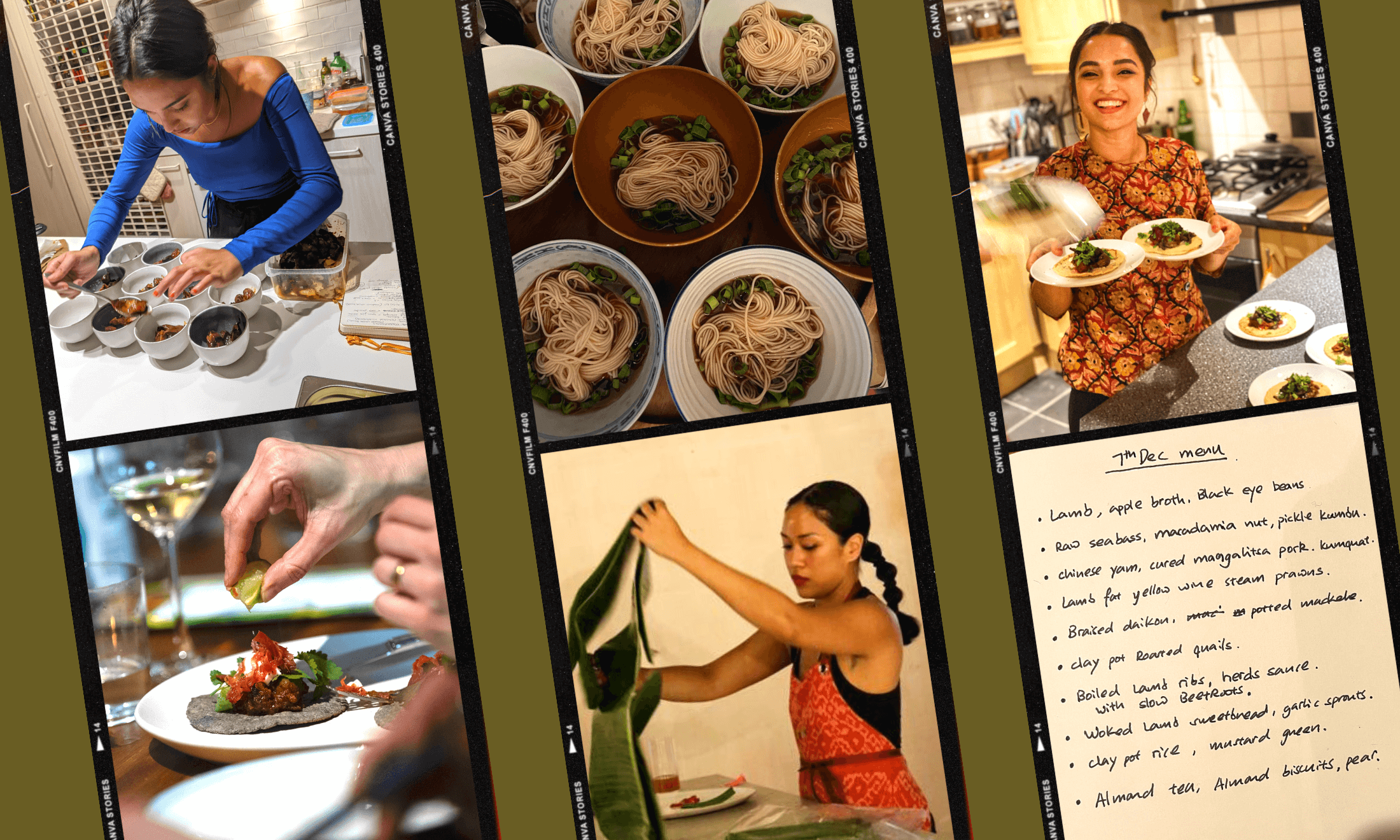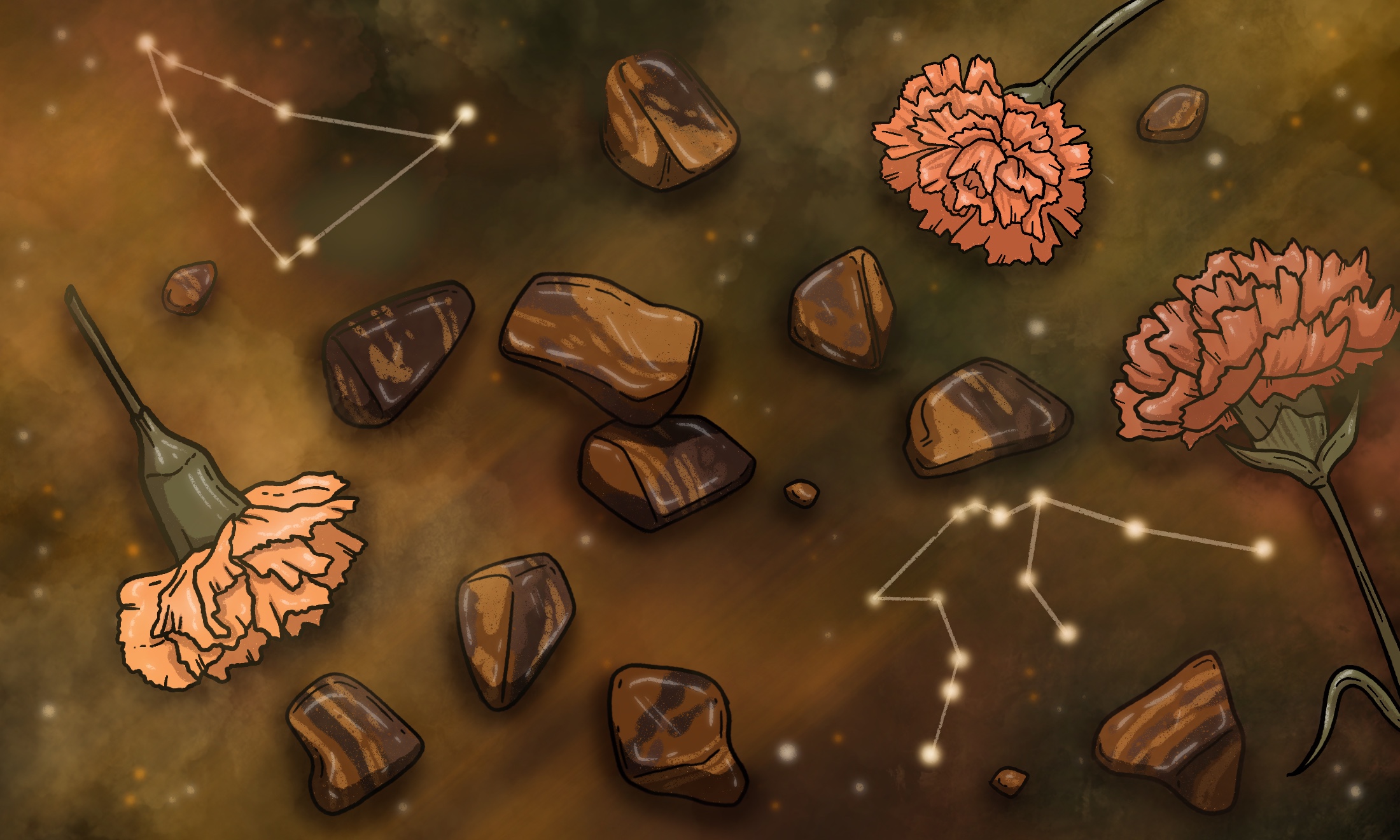
Illustration by Niellah Arboine
Drinking always seemed to be a game of Russian roulette or, like the elusive Google algorithm, a mystery I could never quite solve. A respectable amount to some could tip me over the slippery sober edge one day, or barely touch the sides on another. But my biggest gripe was what happened the morning after.
Regardless of the multiple pints of water, I’d forcibly glug before bed, I’d always rouse in a state of panic and fear. And I’m not alone. “Hangxiety”, feelings of shame and anxiety after having too much alcohol, occurs because your body has a chemical reaction to the high volume of booze in your system. Add to the mix the internalised guilt for not living up to the “good Indian girl” moniker, knowing I wouldn’t have ordered that last round of shots if I was her, and I had myself a potent cocktail for a downward shame spiral instead. Every. Single. Time.
It usually took a day or two of purgatorial suspension before I’d get back to normal. My symptoms were so predictable (according to the University of Exeter’s 2018 research, shy people are more “hangxiety” prone, lucky me!), that whenever I wet my whistle, I knew I was signing up for 24 hours (at least) of self-loathing. Not to mention the incessant messaging to my mates, stemming from the unfounded belief I’d done something wrong à la Dolly Alderton’s “I’m in trouble syndrome”. Or the hollow vows to never touch another drink my husband could recite verbatim before they’d fully escaped my liquor scented lips.
“Whenever I wet my whistle, I knew I was signing up for 24 hours of self-loathing”
The regret was real, despite nothing bad actually happening, which seemed entirely beside the point. The advice online was simple; drink less. So I did, which worked well for Dry January when no one else was popping prosecco either. But by the time February came around, my social diary picked up and I had regressed on more than one occasion.
After strolling past a new yoga studio, I signed up in a bid to get flexible and strong. I lie – it was the idea of morphing into a zen yoga goddess that seduced me, but I ended up getting a lot more than I bargained for (though I’m sadly not quite there with the splits or the goddess bit yet).
And it wasn’t just the satisfaction of nailing chaturanga or getting both legs up in crow pose. I started to notice a monumental shift in my relationship with my thoughts. In fact, yoga gave me the tools to drink with full awareness. So much so, I can now enjoy the odd tipple without the existential crisis. These are the lessons I’ve learned (please note, for anyone that thinks they have a serious issue with alcohol, it’s important to seek the help of a professional):
1. Respect the home you live in
Have you ever sat down and thought about what’s inside your body? Where each organ is, what they do and how they keep you alive? I hadn’t, but the more I became aware of my material being through yoga, the more respect I gained for the physical parts of me. The liver is the hero that works tirelessly to metabolise the alcohol you digest. The more you give it, the harder its job is to break it down, including that final Jägerbomb you definitely could do without.
Respect your body, it’s the only real home you’ll ever have.
2. Get out of your mind and into your body
We spend so much time lost in the depths of our minds, ruminating over the past or worrying about the future. Through yoga, I learned to be present in my body and fully experience the “now”. This didn’t mean leaving the future me to deal with the consequences of that evening’s sesh. Nor did it mean drinking so much the present became a booze-fuelled blur. It required an honest check-in with myself to see if the choices I was making (that fourth Aperol Spritz) felt right. So before ordering the next round, ask yourself: how do I feel? Do I want more or am I acting on autopilot? You may be surprised at how your body responds.
Bring yourself back to the present moment again and again.
3. Be aware of your thoughts, most of them aren’t true
Patañjali says in the Yoga Sutras (the foundational texts of yoga philosophy), that yoga stills the fluctuations of the mind. Like when holding a tricky Warrior III pose, my thoughts can become critical and demotivating if I let them. Similarly, after drinking and with a hazy memory of last night, my mind can tell me stories that aren’t true. Take a wedding I attended with my partner. We’d gotten a little merry which led to me bringing some real enthusiasm to the dancefloor, and the next morning I was convinced I’d made a scene on the happy couple’s big day. So convinced was I that I was now “cancelled”, I even persuaded my husband of my impending cancellation, using an ignored WhatsApp message as conclusive evidence. Needless to say, it wasn’t true. The happy bride upon entering her first few hours of newlywed bliss simply hadn’t had a chance to get back to me (a plus one), that morning.
Allow your thoughts to be, without attaching yourself to them. Remember they are only thoughts.
4. Accept yourself, drunken antics and tomfoolery included
On the mat, we can’t force ourselves into a tricky backbend before we’re physically ready without risking harm, which means we must first learn to accept our bodies as they are. I applied this same principle with compassion and kindness to my “hangxiety”. It meant getting honest and comfortable with who I was, which is somebody that occasionally thinks a second nightcap is a terrific idea and doesn’t give a damn about living up to an outdated and irrelevant view of what an Indian woman should be, rather than punishing myself for who I wasn’t (someone that knows when to call it a day, a “good Indian girl”).
Accept yourself as you are to liberate you from the expectation of who you think you should be.
As B.K.S. Iyengar, founder of Iyengar Yoga said: “yoga does not just change the way we see things, it transforms the person who sees”. Now when I’m handed an ice-cold G&T or I’m sipping a rum and coke in the sun, I know what I need to do. Choose awareness. And often instead of craving a tinny after a laborious week, I find myself reaching for my yoga mat instead.
For more information on alcohol-related support networks:
Drink Aware: https://www.drinkaware.co.uk/
Alcohol Change: https://alcoholchange.org.uk/
Alcoholics Anonymous: https://www.alcoholics-anonymous.org.uk/
Addaction: https://www.addaction.org.uk/









